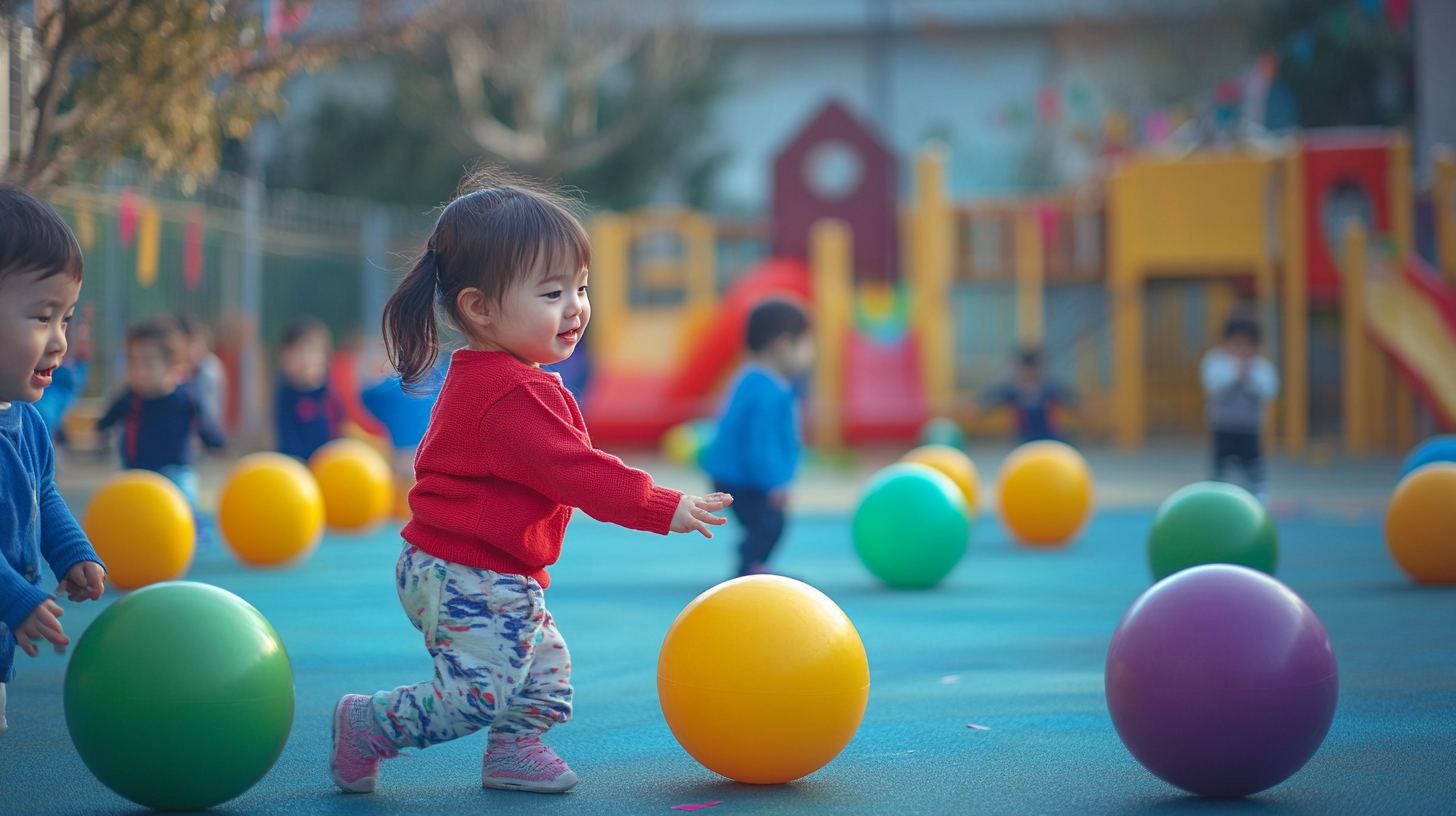Preschool is a magical stage of life, full of discovery, imagination, and learning. As educators and parents, we want to nurture not just a child’s academic curiosity, but also their physical, emotional, and social development. At Discovery Time Learning Center in Alexandria, VA, we believe one powerful tool in this journey is preschool soccer.
It may look like just a bunch of kids chasing a ball, but make no mistake, preschool soccer is more than just fun and games. It’s a structured yet playful environment that encourages cooperation, physical coordination, and emotional intelligence. Whether your child is a full-time student or a drop-in participant, they can benefit from this dynamic and engaging sport.
Let’s explore why preschool soccer is a winning choice for your child’s development.
The Power of Play: Why Soccer Works for Preschoolers
Preschoolers learn best through movement and play. Soccer is naturally engaging for young children, it has a clear objective (kick the ball into the goal!), simple rules, and lots of opportunity to run, jump, and laugh. It transforms what might feel like “exercise” into something they genuinely look forward to.
Benefits of preschool soccer include:
- Enhancing gross motor skills like kicking, running, and stopping
- Teaching body control and balance
- Developing spatial awareness and hand-eye coordination
- Encouraging communication and listening skills
- Offering a safe outlet for energy and excitement
When taught in an age-appropriate way, soccer becomes a powerful tool to promote both physical and social-emotional growth.

Building Teamwork from the Ground Up
Teamwork doesn’t come naturally to every preschooler, and that’s okay. Soccer creates the ideal microcosm for learning what it means to work with others toward a shared goal.
Here’s how:
1. Shared Responsibility
In soccer, there’s no single superstar. Everyone has a role, even if it’s simply guarding the goal or passing the ball. Children learn that their actions affect the team, which reinforces accountability and a sense of purpose.
2. Listening and Communication
Even in its most basic form, soccer requires players to listen to coaches, follow directions, and communicate with teammates. Whether it’s calling out a teammate’s name or waiting their turn to kick, these actions build emotional maturity and patience.
3. Problem Solving Together
A soccer game is filled with quick decisions. Who has the ball? Where should I go? Can I help a teammate? This builds a child’s ability to assess situations and act thoughtfully, sometimes with the help of others.
4. Celebrating Wins (and Handling Losses)
Part of being on a team is learning how to win graciously and lose respectfully. These lessons are crucial for emotional regulation and resilience. Soccer helps young children handle both excitement and disappointment within a supportive setting.
Boosting Coordination Through Movement
Physical coordination in early childhood lays the foundation for everything from handwriting to riding a bike. Soccer helps build the key muscle groups and movement patterns that support a child’s physical development.
Here’s how soccer helps improve coordination:
1. Foot-Eye Coordination
Unlike most sports that rely on hand-eye coordination, soccer primarily develops foot-eye coordination. This lesser-used skill supports balance, reflexes, and agility.
2. Balance and Core Strength
Running, pivoting, and standing on one foot while kicking all help improve core strength and balance. These are vital for other physical activities like climbing stairs or jumping.
3. Reaction Timing
Reacting quickly to a moving ball teaches preschoolers to process information swiftly and act with purpose. This improves both physical and cognitive speed.
4. Whole-Body Awareness
Soccer requires kids to be aware of their bodies in space: where their teammates are, how fast they’re moving, and how close they are to the ball. This builds proprioception, a key element of physical intelligence.

Social Benefits Beyond the Field
In addition to teamwork and coordination, preschool soccer supports broader social development in several important ways:
• Boosting Confidence
Every successful pass, goal, or even attempt contributes to a child’s self-esteem. Being cheered on by coaches and teammates reinforces positive self-image.
• Encouraging Friendships
Shared experiences on the field often turn into friendships off the field. For children who are shy or reluctant to engage in traditional group settings, soccer provides a more organic way to build connections.
• Instilling Routine and Discipline
Following directions, showing up on time, and being part of a practice schedule gently introduces children to structure and responsibility.
Why Discovery Time Learning Center Champions Preschool Soccer
At Discovery Time Learning Center in Alexandria, VA, we believe in a well-rounded early childhood experience. Our preschool soccer program is a fun, developmentally appropriate way to support children’s social, emotional, and physical growth.
Here’s what makes our program unique:
- Certified early childhood educators who understand the developmental stages of preschoolers
- Inclusive participation, every child is encouraged to join, regardless of athletic ability
- Focus on fun and skill-building, not competition
- Flexible scheduling options, including full-time, part-time, and drop-in availability
We integrate soccer into our curriculum because we see firsthand how it benefits our students, both on and off the field. It’s more than just play; it’s purposeful learning disguised as fun.
Conclusion: A Strong Start with Soccer
Preschool soccer is more than just a game. It’s a meaningful way to build teamwork, develop coordination, and support the whole child. At Discovery Time Learning Center, we’ve seen the transformative impact of sports-based learning and are proud to offer this engaging experience to our families.
Whether you’re looking for full-time care, part-time preschool, or drop-in daycare in Alexandria, VA, we invite you to discover the difference at Discovery Time. Your child’s future is shaped by the choices you make today, why not choose a place that values play, learning, and growth in equal measure?
Ready to kick-start your child’s development?
Contact Discovery Time Learning Center today to learn more about our full-time, part-time, and drop-in daycare programs in Alexandria, VA. Let’s grow, learn, and play together.



